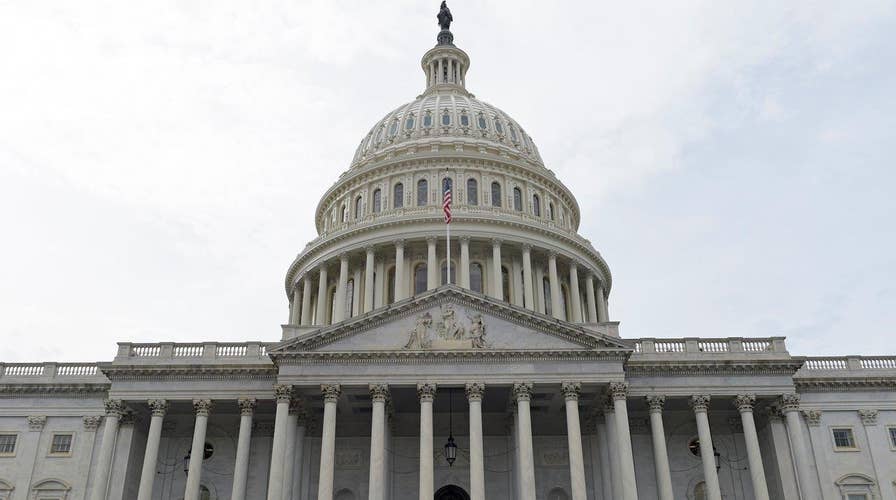Congress averts government shutdown for now
Juan Williams and Noah Rothman discuss the ongoing debate to keep the government funded
President Trump signed a one-week stopgap spending bill Friday night to avert a governement shutdown that Congress passed earlier in the day, giving lawmakers more time to negotiate a broader budget deal – as lawmakers also pushed off talks on a new health care package.
The spending measure passed the Senate by voice vote after clearing the House on a bipartisan 382-30 vote. It now goes to President Trump's desk.
Lawmakers had been facing a midnight deadline to pass a new funding bill. They will now continue to work on a bigger, $1 trillion budget package, under a new deadline of next Friday.
Senate Majority Leader Mitch McConnell, R-Ky., said earlier that bargainers were "very close" to an agreement. But underscoring lingering battles over environmental and financial regulations, Senate Minority Leader Chuck Schumer, D-N.Y., continued to object to what he called "poison pill riders."
But the bipartisan budget talks had progressed more smoothly after the White House dropped a threat to withhold payments that help lower-income Americans pay their medical bills and President Trump abandoned a demand for money for a border wall with Mexico.
On the separate health care bill, House Republican leaders are still scrounging for votes from their own rank-and-file.
There is no vote planned for Friday, meaning Trump will finish his first 100 days without a major legislative accomplishment.
House Rules Committee Chairman Pete Sessions, R-Texas, said it’s possible they could entertain a health care bill next week. “A definite maybe,” he said.
Republicans have revised an earlier version to let states escape a requirement under President Barack Obama's 2010 law that insurers charge healthy and seriously ill customers the same rates. They could also be exempted from Obama's mandate that insurers cover a list of services like hospitalization and substance abuse treatment and from its prohibition against charging older customers more than triple their rates for younger ones.
The overall legislation would cut the Medicaid program for low-income people, eliminate Obama's fines for people who don't buy insurance and provide generally lower subsidies.
More than a dozen Republicans, mostly moderates, said they were opposing the legislation. Many others remained publicly uncommitted, putting party elders in a tough spot. House Speaker Paul Ryan, R-Wis., wants to avoid an encore of last month's embarrassment, when he abruptly canceled a vote because of opposition from moderates and conservatives alike.
On Wednesday, conservatives in the House Freedom Caucus announced their support for the revised health legislation.
Fox News’ Chad Pergram and The Associated Press contributed to this report.











































